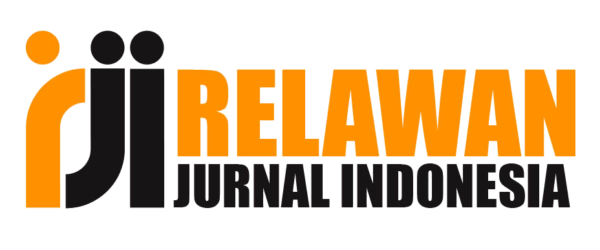Analisis pemahaman konsep fisika siswa smp pada materi suhu dan kalor menggunakan tes isomorfik : Rasch model
Abstract
The purpose of this study is to determine the understanding of students' concepts using isomorphic tests using rasch model analysis. This research method uses a cross-sectional survey model conducted on 135 students from classes VIII and IX at one of the State Junior High Schools in Lebak Regency. The instrument used is an isomorphic test instrument of 12 multiple-choice questions. The data analysis technique uses the wright map feature on the rasch model. The results showed that using isomorphic tests, it was found that students could more easily understand concepts in table form and students had difficulty doing questions in graphic form. Of the four concepts tested, it was found that 93.3% of students understood the concept of temperature to be in the very high category, there were 77% of students who understood the concept of heat which belonged to the medium category, and there were only 48.15% of students who understood the concept of heat expansion and transfer which belonged to the low category.
Full Text:
PDF (BAHASA INDONESIA)References
Kusairi, Sentot. (2012). Assessment Formatif dalam Pembelajaran Fisika. (Makalah disajikan dalam Workshop Penyusunan Instrumen Evaluasi dan Pembentukan Karakter Guru SMPN 18 Malang)
Kusairi, Sentot. (2020). A Web-Based Formative Feedback System Development by Utilizing Isomorphic Multiple Choice Items to Support Physics Teaching and Learning. Journal of Technology and Science Education, 10(1), 117-126
Mustaing, Iing. (2015). Kemampuan Membaca dan Interpretasi Garfik dan Data : Studi Kasus pada Siswa Kelas 8 SMPN. Scientiae Educatia : Jural Pendidikan. Vol 4, No 2.
Ningsari, I. S., Zainuddin, A., & Setyarsih, W. (2021). KAJIAN LITERATUR INSTRUMEN ISOMORFIK SEBAGAI ASESMEN PEMBELAJARAN FISIKA. ORBITA: Jurnal Kajian, Inovasi dan Aplikasi Pendidikan Fisika, 7(1), 54-64.
Nuha, S. A., Kusairi, S., & Sujito, S. (2017). Pengaruh Implementasi Formative Feedback Berbasis Web dengan Menggunakan Butir Isomorfik terhadap Penguasaan Konsep Fisika Siswa SMA Pokok Bahasan: Usaha dan Energi. In Seminar Nasional Fisika dan Pembelajarannya (pp. 128-137).
Prasetyo, B. & Miftahul Jannah, M. (2005). Metode penelitian kuantitatif : Teori dan Aplikasi. Jakarta: PT RajaGrafindo.
Rarasati, Agnes. (2016). Pengembangan Tes Diagnostik Pilihan Ganda Isomorfik pada Materi Gelombang Mekanik. Skripsi tidak diterbitkan. Malang : Jurusan Fisika, Program Studi Pendidikan Fisika, Fakultas Matematika dan Ilmu Pengetahuan Alam, Universitas Negeri Malang.
Rizman Fuzan, Eris. (2016). Penerapan Pendekatan Multirepresentasi pada Pembelajaran Fisika untuk Meningkatkan Kemampuan Siswa dalam Memecahkan Persoalan Fisika Isomorfik. Skripsi tidak di terbitkan. Bandung : Universitas Pendidikan Indonesia.
Sanjaya, w. (2009). Strategi Pembelajaran Berorientasi Standar Proses Pendidikan. Jakarta: Kencana Pernada Media Group.
Sudijono, Anas. (2008). Pengantar Evaluasi Pendidikan. Jakarta : Rajawali Press
Sumintono, B. & Widhiarso, W. (2015). Aplikasi Pemodelan Rasch pada Assesment Pendidikan. Cimahi : Trim Komunikata.
Susanto, Ahmad. (2014). Teori Belajar dan Pembelajaran di Sekolah Dasar. Jakarta: KENCANA.
Suparno, P. (2005). Miskonsepsi dan Perubahan Konsep dalam Pendidikan Fisika. Jakarta: Grasindo.
Suwarto. (2013). Pengembangan Tes Diagnostik dalam Pembelajaran. Yogyakarta: Pustaka Pelajar.
Trisnani, Novy. (2019). Teknik Sampling dan Survey. (Modul). Yogyakarta : IKIP PGRI Wates.
DOI: https://doi.org/10.17509/wapfi.v9i1.52655
Refbacks
- There are currently no refbacks.
Copyright (c) 2024 Universitas Pendidikan Indonesia (UPI)

This work is licensed under a Creative Commons Attribution-ShareAlike 4.0 International License.
The Journal Wahana Pendidikan Fisika http://ejournal.upi.edu/index.php/WapFi/ is licensed under a Creative Commons Attribution-ShareAlike 4.0 International License
The Journal WaPFi (Wahana Pendidikan Fisika).
All rights reserverd. pISSN 2338-1027 eISSN 2685-4414
Copyright © Faculty of Mathematics and Science Education (FPMIPA) Universitas Pendidikan Indonesia (UPI)










